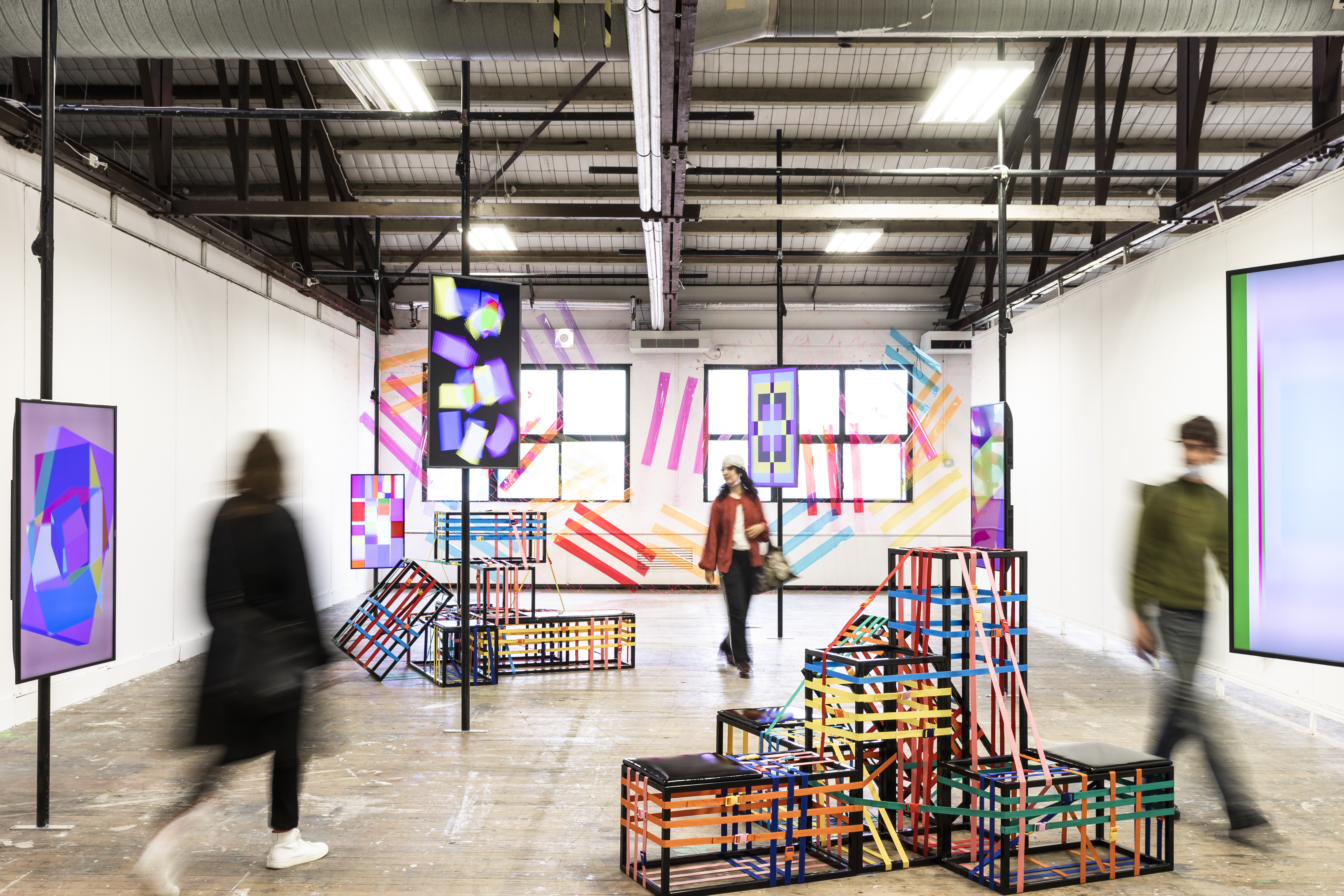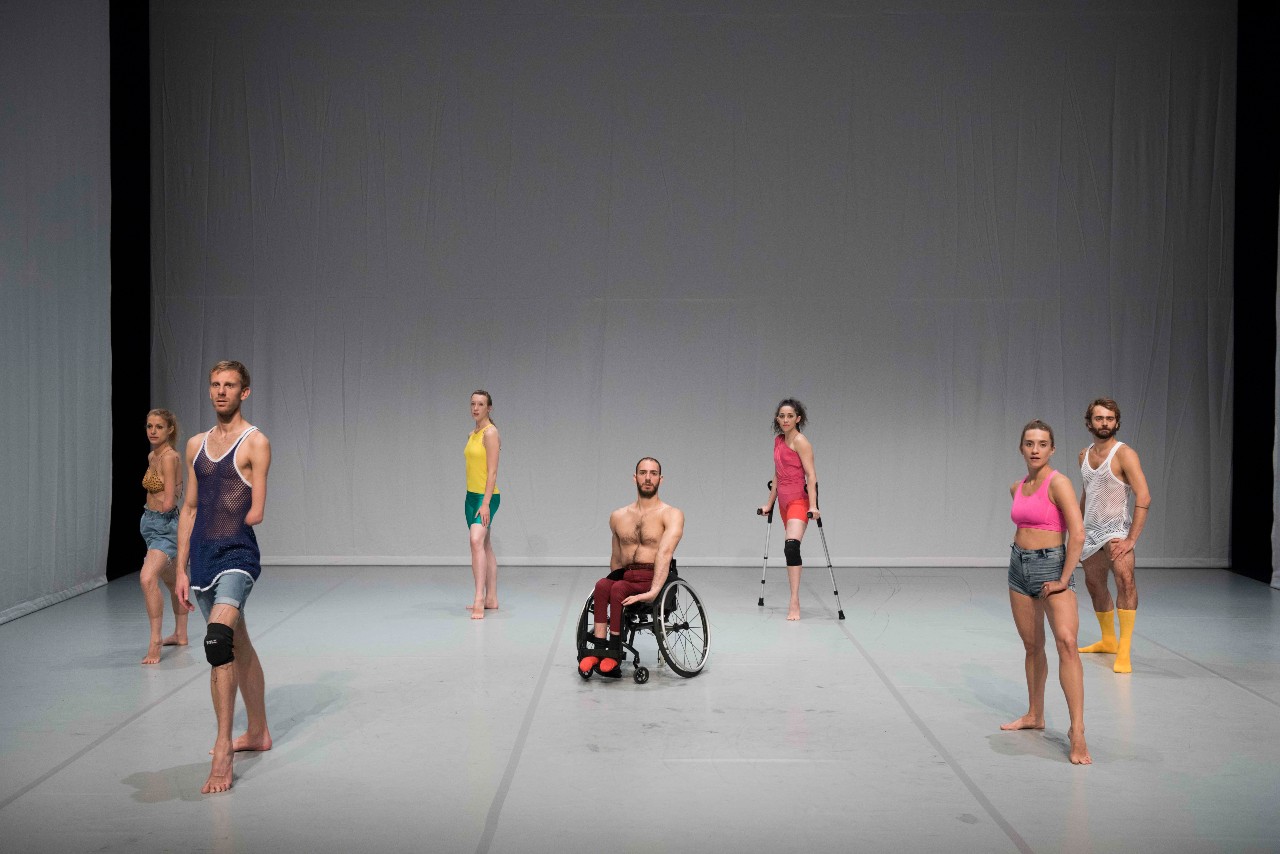Looking forward: Director Dialogues address key areas of focus for the VCA in its 50th year

The Victorian College of the Arts’ (VCA) 50th anniversary represents a chance to reflect on the last half-century of arts practice in Naarm/Melbourne and position itself for the next.
In a series of four public forums, new Director of the VCA, Professor Emma Redding will speak with leading thinkers from inside and outside its walls, about the key areas of focus for the VCA community, as part of the broader arts sector, in its 50th year.
Held over four Tuesdays from September to November, the VCA Director's Dialogue Series will consider the key areas of importance and the major challenges facing the Victorian College of the Arts, as part of the broader national and international sector today. The talks are categorised under four themes: arts and wellbeing, the globalisation and digitisation of arts practice, inclusion and diversity in the sector, and new approaches to training an artist in the pandemic decade.
The talks will be a chance for our students, alumni, sector peers and thought leaders to get to know Professor Emma Redding, and be part of exciting discussions with world-leading staff from the Faculty of Fine Arts and Music, about the direction of the next 50 years of tertiary arts education.
All are welcome.

Arts for wellbeing and wellbeing for artists
When: Tuesday 13 September, 6.00-7.15pm
Where: Federation Hall, VCA Film & Television Building, Grant Street, Southbank
Tickets via this link
Speakers:
Tiriki Onus – Head of the Wilin Centre for Indigenous Arts and Cultural Development, Faculty of Fine Arts and Music
Kat McFerran – Professor in Music Therapy, Melbourne Conservatorium of Music
Jane Davidson – Head, Faculty Research Centre, Faculty of Fine Arts and Music
Sue Mayes – Director of Artistic Health, the Australian Ballet
Patricia Piccinini – Artist, Enterprise Professor at the University of Melbourne
The pandemic was a time when, for some, caring for Country became more than ideology. As international travel shut down, more people began to listen and actively participate in their local environments. How can we continue to deepen the practice of caring for Country in an ever more unstable environment? What are our ethical obligations as an art sector to do so? What other lessons can educational institutions learn about enhancing student experience from the pandemic period?
In this discussion, renowned arts practitioners and educators will consider the role that art can play in the broader community and Country as well as the importance of enhancing the wellbeing of artists through science and education.
The panellists will discuss research about the beneficial health impacts of involvement in the participatory arts, and wellbeing-centred approaches to training performing artists.
Speakers will discuss the current state of play regarding performance artists’ health and wellbeing and what lessons have been learned from research in this area. In treating performing artists like athletes and utilising science to prevent injury, we may enhance performance while maintaining performing artists’ wellbeing, enabling them to have longer, healthier careers.
The discussion will be both technical and aspirational, as speakers consider how art can be used to enhance the health and wellbeing of others and even how the arts can foster social cohesion in a world rife with misinformation and division.

Celebrating intersectionality and inclusion in the arts
When: Tuesday 11 October, 6.30-7.45pm
Where: Studio 221, VCA Dance Building
234 St Kilda Road
Southbank
Tickets via this link
Speakers:
Chris Mead – Head of Theatre, Victorian College of the Arts
Ioannis Sidiropoulos – PhD Candidate at the Victorian College of the Arts
Derrick Brown – Dance Science researcher, Senior Lecturer at University of Bern, Switzerland
Anthea Skinner – McKenzie Postdoctoral Fellow, Faculty of Fine Arts and Music
Alyson Campbell – Professor in Theatre, Victorian College of the Arts
Tristen Hardwood – Lecturer, Victorian College of the Arts
What is the responsibility of arts institutions to ensure diversity, equity and inclusion in the sector?
This panel examines and critiques the normative, Western ideologies which have dominated our arts sector, and discusses the role that non-normative and marginalised approaches can play in challenging them. Panellists invite us to think about the vital importance of diversity in the sector, and the impetus and responsibility that universities have to platform diverse voices. How can we dismantle structures, processes and ideologies that get in the way of First Nations voices, queer voices, disabled voices and other non-white, non-patriarchal voices? And why is this crucial for our sector, and society more broadly?
This panel of expert speakers draws on their varied expertise to ask questions such as: How can we decolonise our approach to artmaking, curatorship and memorialisation? What does a disability-led approach to developing and presenting art look like? What would queering the curriculum look like?

Creative technologies and intertwined innovation
When: Tuesday 8 November, 6.00-7.15pm
Where: Studio 221, VCA Dance Building
234 St Kilda Road
Southbank
Tickets via this link
Speakers:
Robert Walton – Artist, Senior Lecturer in Theatre (Acting), Victorian College of the Arts
Carol Brown – Head of Dance, Victorian College of the Arts
Stelarc – Performance Artist
Adam Sutardy – Tutor in Film and Television, Victorian College of the Arts
The pandemic has advanced the digitisation of arts practice globally. In this context, a panel of distinguished artists considers the ways that technology co-exists with the human body, and how we build and predict futures through art.
Panellists reflect on the impact of emerging technologies on their own practices and speculate on where we might be heading next. Along the way they discuss the influence of artificial intelligence, datafication, sensors, the proliferation of screens, and the impact of virtual production on theatre, art, and film. They also consider the influence of the arts on emerging technologies, and the potential of art-tech collisions to propose alternative ways of living, making and collaborating.

Future forward: Emerging artists now
When: 29 November, 6.00-7.15pm
Where: Studio 221, VCA Dance Building
234 St Kilda Road
Southbank
Tickets via this link
Speakers:
Tiriki Onus – Head of the Wilin Centre for Indigenous Arts and Cultural Development, Faculty of Fine Arts and Music
Natalie King – Curator, Writer and Researcher, Enterprise Professor at University of Melbourne
Simone Slee – Head of Art, Victorian College of the Arts
Sally Smart – Artist, Honorary Professorial Fellow at University of Melbourne
What are the pathways of learning, research and practice for emerging artists? How can the VCA remain globally relevant and recognise its context, locality and history of traditional owners? How can the art institute be an experimental environment for artist’s education, artistic research and theoretical reflection?
In this discussion, panellists consider the university as a site where speculation, curiosity and failure are valued, where inspired learning and unlearning is fostered. The panel will reflect on what a “decolonised curriculum” might comprise and discuss topics such as collective learning, dismantling power structures of the solo professor and the future of the lecture. They consider the importance of oral exchange, listening and learning that may not be quantifiable by assessment.
Together, they imaginatively consider the core tenets of an arts curriculum where creativity and co-existence are nurtured in times of seismic upheaval.
- View a full list of events in the VCA Director's Dialogue Series on the eventbrite page
- The Victorian College of the Arts turns 50 this year! Find out how you can get involved
